The Re-Birth of the Second Plane Child
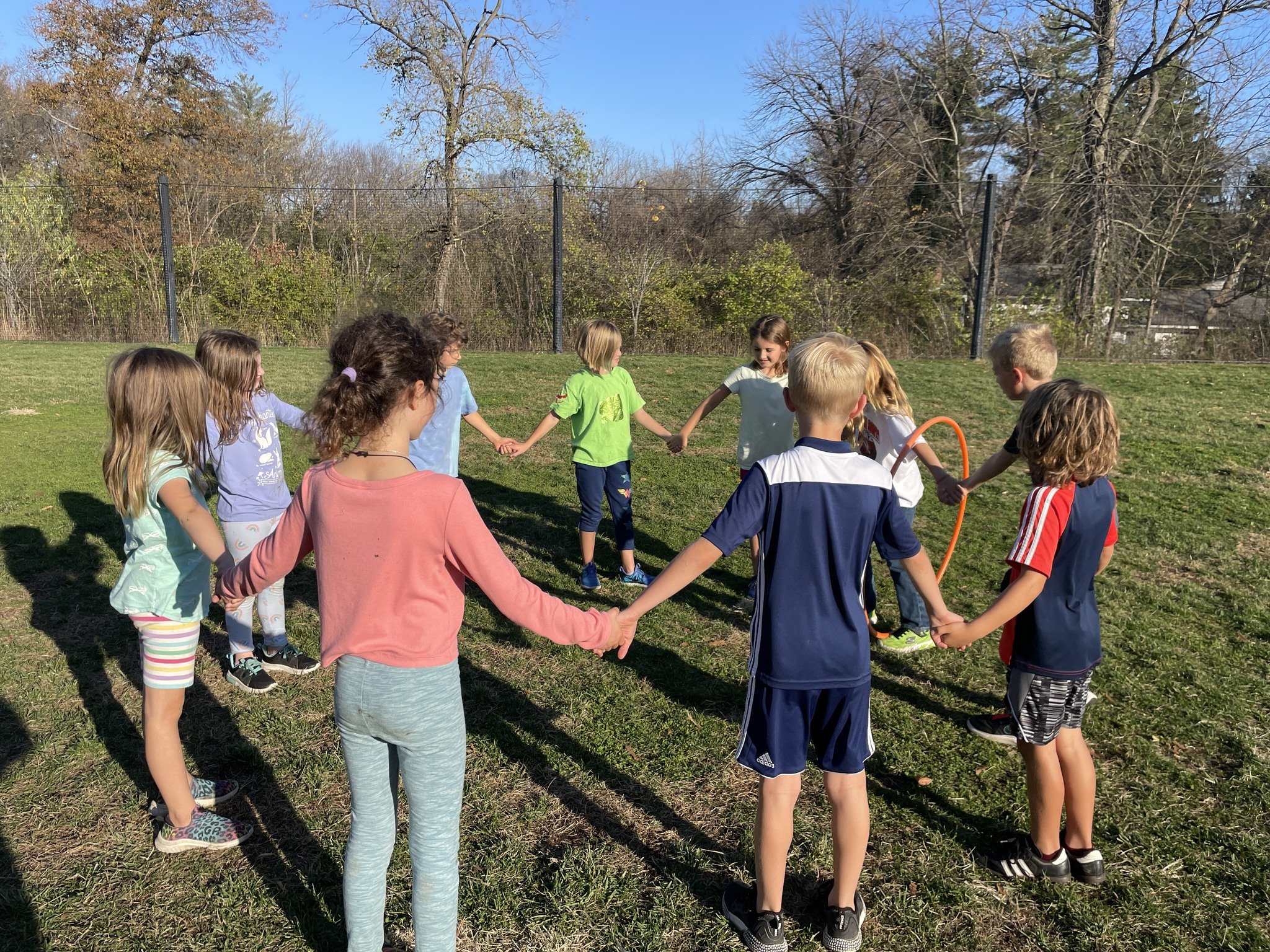 The start of the academic year is always a joyful, exciting time with the reunion of old friends and welcoming new ones. Many children returned to their familiar classroom environments and communities of children and guides, while other students made the transition to their brand new community. Today we’d like to discuss the transition between the Children’s House environments (3-6 years old) to the Elementary (6-12 years old). This is the most significant transition that happens here at Villa di Maria Montessori, because it encompasses a shift from the First Plane of Development to the Second Plane. Dr. Maria Montessori used this framework of the Four Planes of Development to describe the journey each child passes through from birth to adulthood. Read more about Dr. Montessori’s Four Planes on this past blog post.
The start of the academic year is always a joyful, exciting time with the reunion of old friends and welcoming new ones. Many children returned to their familiar classroom environments and communities of children and guides, while other students made the transition to their brand new community. Today we’d like to discuss the transition between the Children’s House environments (3-6 years old) to the Elementary (6-12 years old). This is the most significant transition that happens here at Villa di Maria Montessori, because it encompasses a shift from the First Plane of Development to the Second Plane. Dr. Maria Montessori used this framework of the Four Planes of Development to describe the journey each child passes through from birth to adulthood. Read more about Dr. Montessori’s Four Planes on this past blog post.  As parents, witnessing this shift in characteristics of their child from the First to Second Plane can be a bit surprising and often results in the need for readjustments in the household/family life. Dr. Montessori believed this transition was so momentous that she called it a re-birth. Our annual Montessori 202 presentation was born out of the need to help parents successfully navigate this important transition. Our guides do a tremendous job presenting crucial information during this yearly Parent Talk and we’d like to share some important pieces for those of you that are looking to the future or wanting (needing!) a refresher. If you know what’s ahead, it’s easier to adapt and embrace the changes that emerge.
As parents, witnessing this shift in characteristics of their child from the First to Second Plane can be a bit surprising and often results in the need for readjustments in the household/family life. Dr. Montessori believed this transition was so momentous that she called it a re-birth. Our annual Montessori 202 presentation was born out of the need to help parents successfully navigate this important transition. Our guides do a tremendous job presenting crucial information during this yearly Parent Talk and we’d like to share some important pieces for those of you that are looking to the future or wanting (needing!) a refresher. If you know what’s ahead, it’s easier to adapt and embrace the changes that emerge. 
Second Plane Characteristics
Children begin to transition to the Second Plane of Development around the age of six years old. It doesn’t magically happen on their sixth birthday or at the end of their Culminating year in the Children’s House. Gradually you will begin to notice some of these characteristics revealing themselves in your child as the transition to elementary grows near. 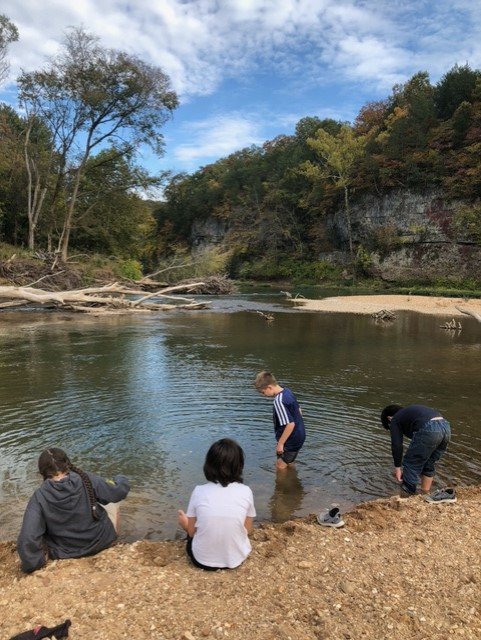
Fearless and Tough
The second plane child is strong physically. The first plane child tends to be more susceptible to illness, as does the adolescent (12-18 years old). The elementary child is more daring and adventurous and doesn’t want a fuss made over an injury, like they might have when they were younger. Within safe limits, it is beneficial to allow the child to take these bold leaps and bounds in order to build their confidence. 
Messy
The elementary child tends to be a bit messy and untidy, generally speaking. They no longer have the urge to order their external environment because they’ve internalized that order. They are now focused on ordering their mind. You might notice this trend affecting their personal hygiene as well. They might lack awareness of the dirt on their hands or the changes in their body odor, so they need gentle and firm encouragement to continue regular handwashing and bathing or showering. Please see more ideas further down in this post for assistance with household cleaning and organization. 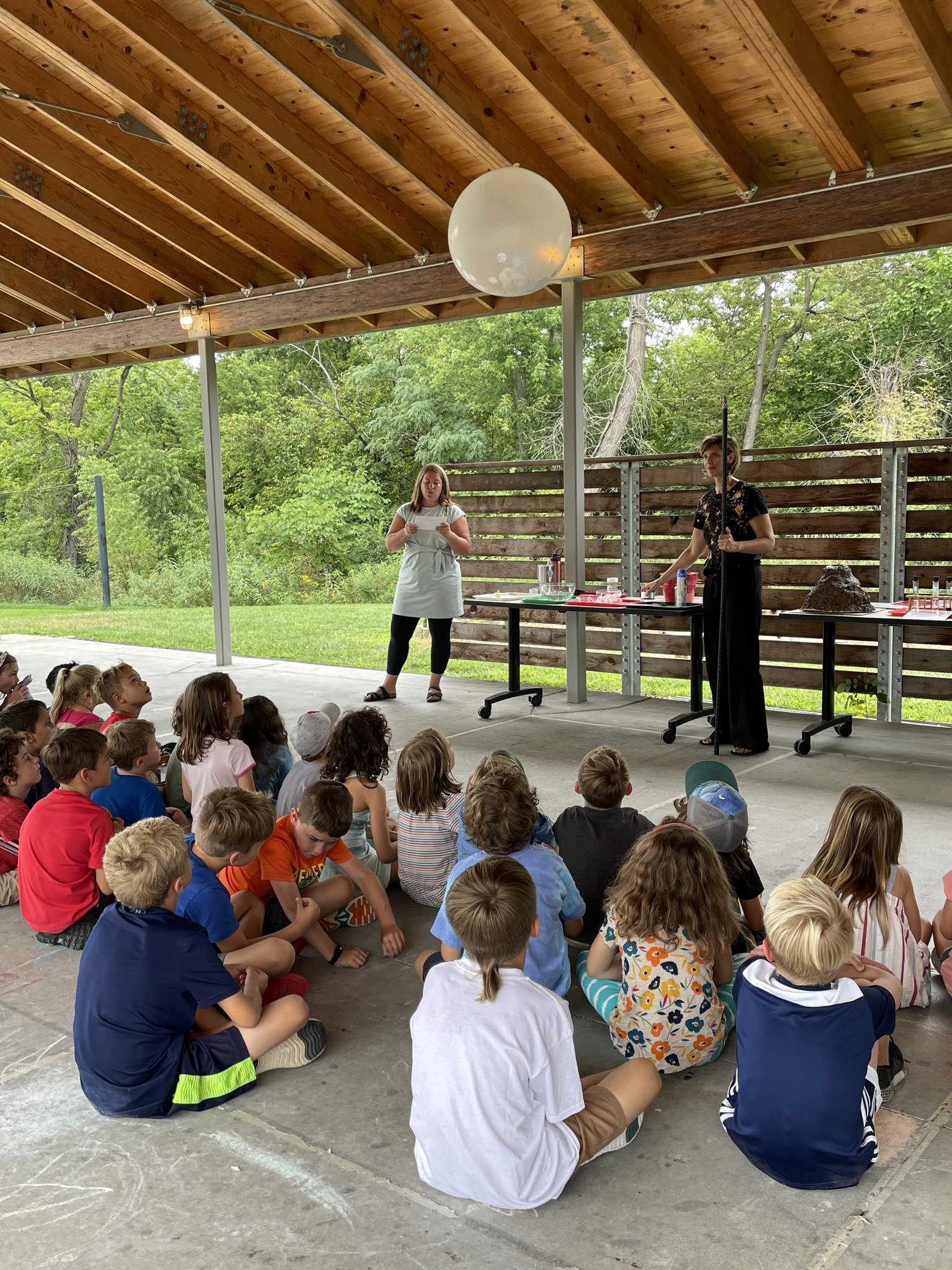
“Why?”
Dr. Montessori spoke of these years between the age of six and twelve years as the most intellectual of a person’s life. Their brain functions differently than the way it functioned throughout the first plane, where they had the power of the Absorbent Mind. Now entering the phase of the rational mind, they want to ask ALL THE QUESTIONS about the world around them, and well beyond. Why do the birds migrate? Why is the sun so hot? Why does my family do things differently than other families? We want to invite these questions and explore together to find the answers. Guides seek to connect students with resources (books, safe internet websites, experts in the field) to promote their independence in finding answers in the future. 
Socialization
Friendships become more important to the child at this stage of their development. In the First Plane, the child was mainly focused on self-construction (i.e. independent movement, development of language, eating, putting on shoes, etc.), and now, in the second plane, the child must begin to take their place in society at large, well beyond the home and the classroom. We encourage and support the “Going Out” in our elementary community because the classroom is no longer sufficient to satisfy the needs of this intellectual extrovert. To learn more about “Going Out”, check out this past blog post. Parents can support the expression of this characteristic by providing opportunities for the child to accompany them into society (i.e. taking the lead in paying at the cash register or navigating directions to the store). 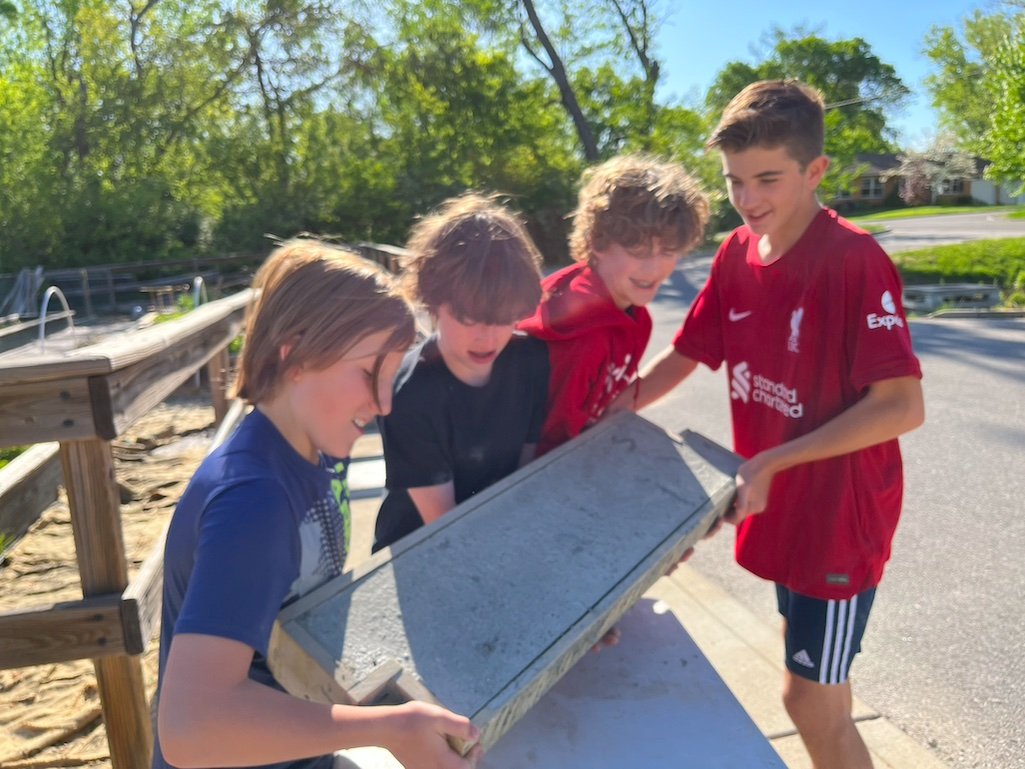
Justice
During these years, the children develop a strong awareness of morality and justice. Their conscience emerges more clearly as they explore their sense of right and wrong. This might express itself as tattling or reporting as they seek to understand what is acceptable and what is not. Guides in the classroom notice this particularly around the ages of 6 ½ - 8 years old. Initially, the intent may not be to get others in trouble, but merely to know if the guide will accept this behavior. Guides respond in a way that helps the child begin to set their own moral compass, confirming whether the behavior is right or wrong, but not necessarily intervening to stop the behavior right away (unless safety is a concern). In this way, the guide addresses the moral need of the child, without reinforcing a pattern that could develop.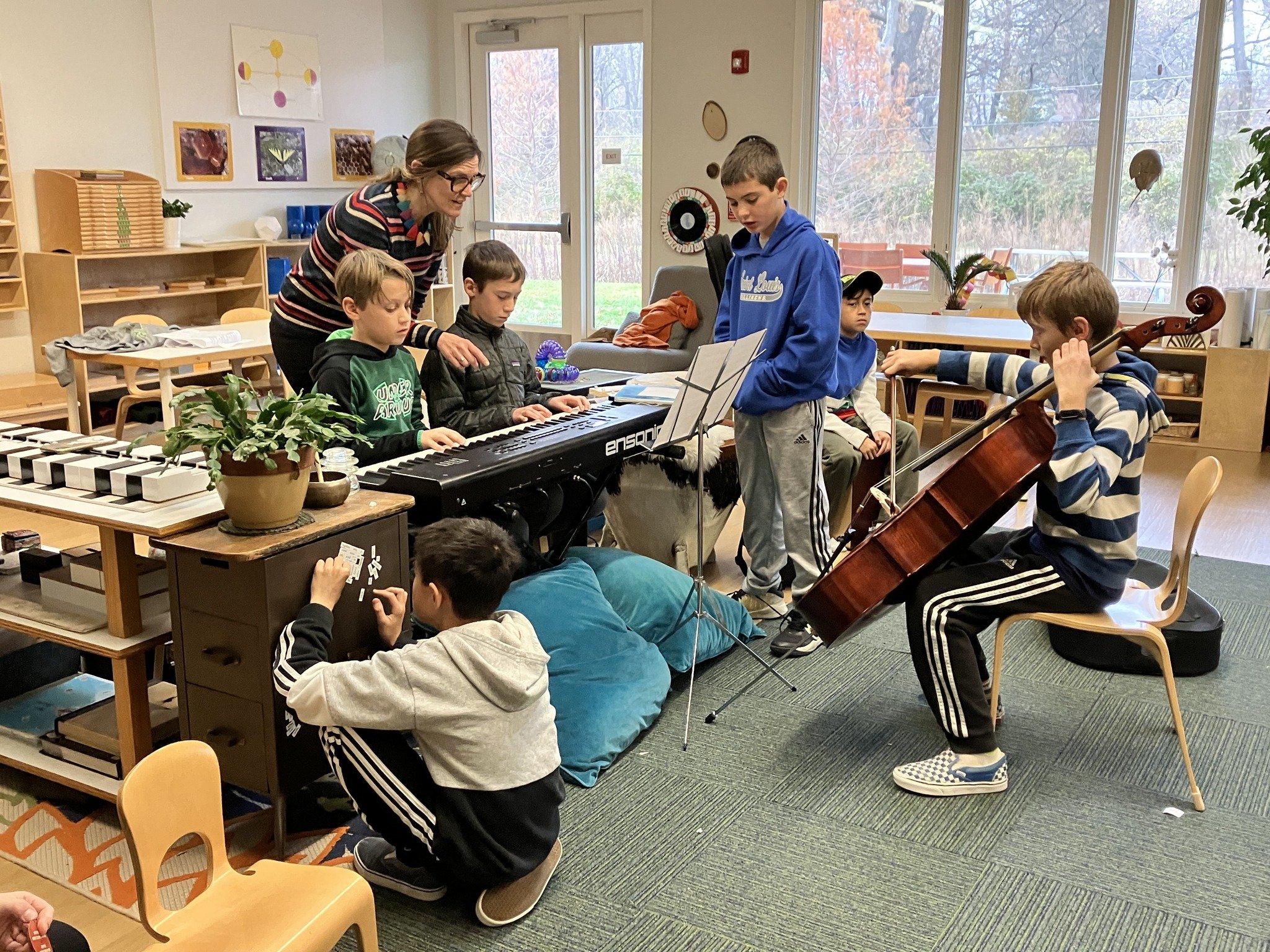
Hero Worship
Along with the sensitivity towards morality, the elementary child seeks out heroes; admirable people to look up to. Guides and parents can help direct the child toward positive heroes and role models through books, stories and relevant current events. We want the children to recognize the true heroes of this world, those who sacrifice for others and work to make our world a better place. 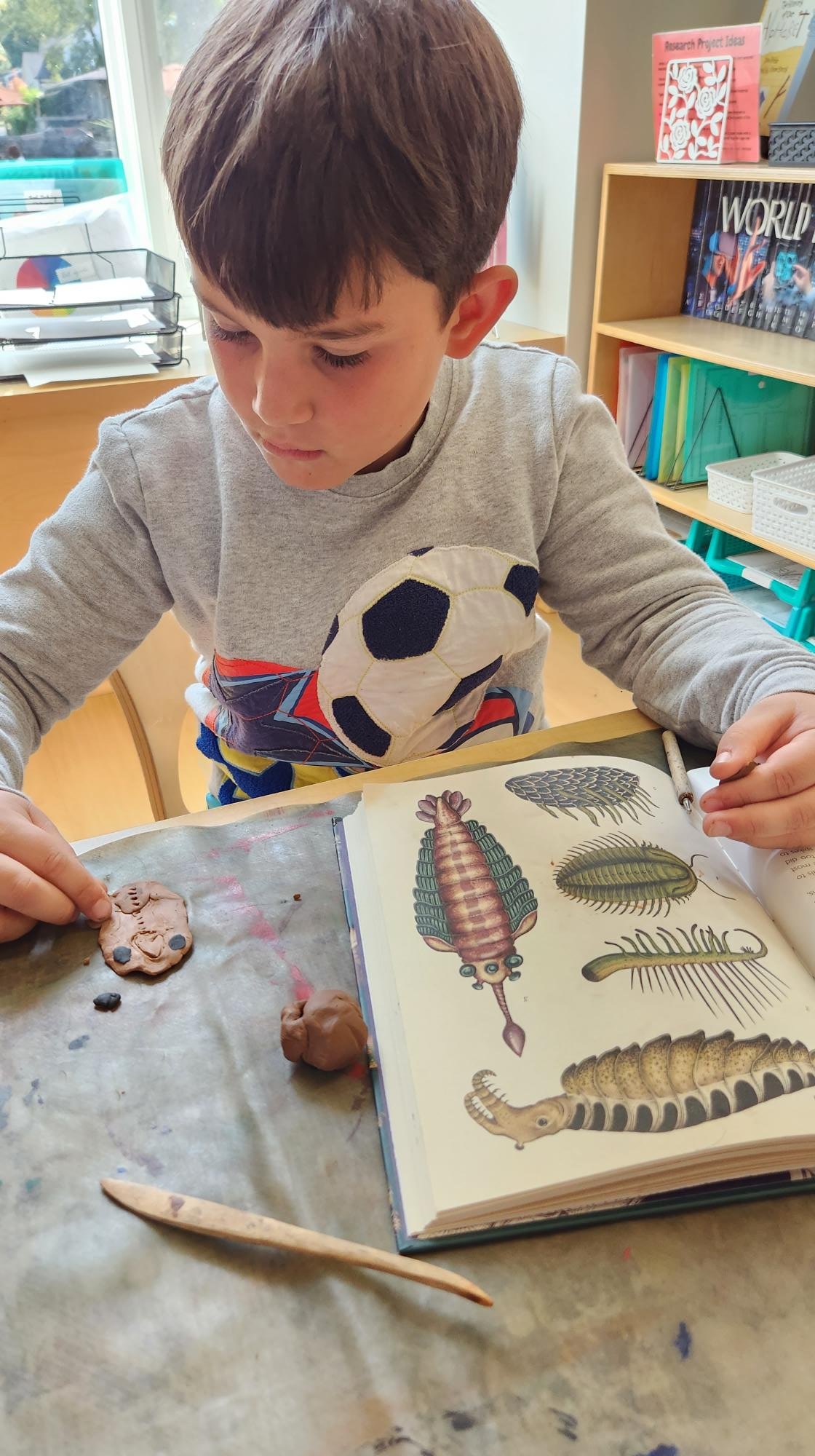
How to Support your Second Plane Child
What are the ways you can assist your child smoothly through this transition? First of all, simply being aware of these characteristics will help you recognize that this shift is to be expected and embraced as your child continues on their developmental path. In the area of cleanliness, though they won’t naturally care to keep things as tidy and organized, it is still important to have structure and expectations in this area. In the elementary classroom, we give the child freedom to explore their work and to create expressively, but once the work is finished or the work period has ended, we expect them to tidy their spaces, clean the materials and return them to their space ready for the next child to use. Likewise, you might decide at home that there are certain times when projects must be cleaned up or stored away. Perhaps consider implemenmting a cleaning routine before bed or helping tidy the kitchen right after dinner. Elementary age children need assistance with these boundaries to maintain external order because this does not come as naturally for them in this season of their life. Because children in the Second Plane are motivated socially, doing chores together might help them complete a task. Deciding expectations together, as a family, ahead of time will be important as well. Their keen sense of justice will rest a bit if they have some choices in which chores and responsibilities they agree to do. 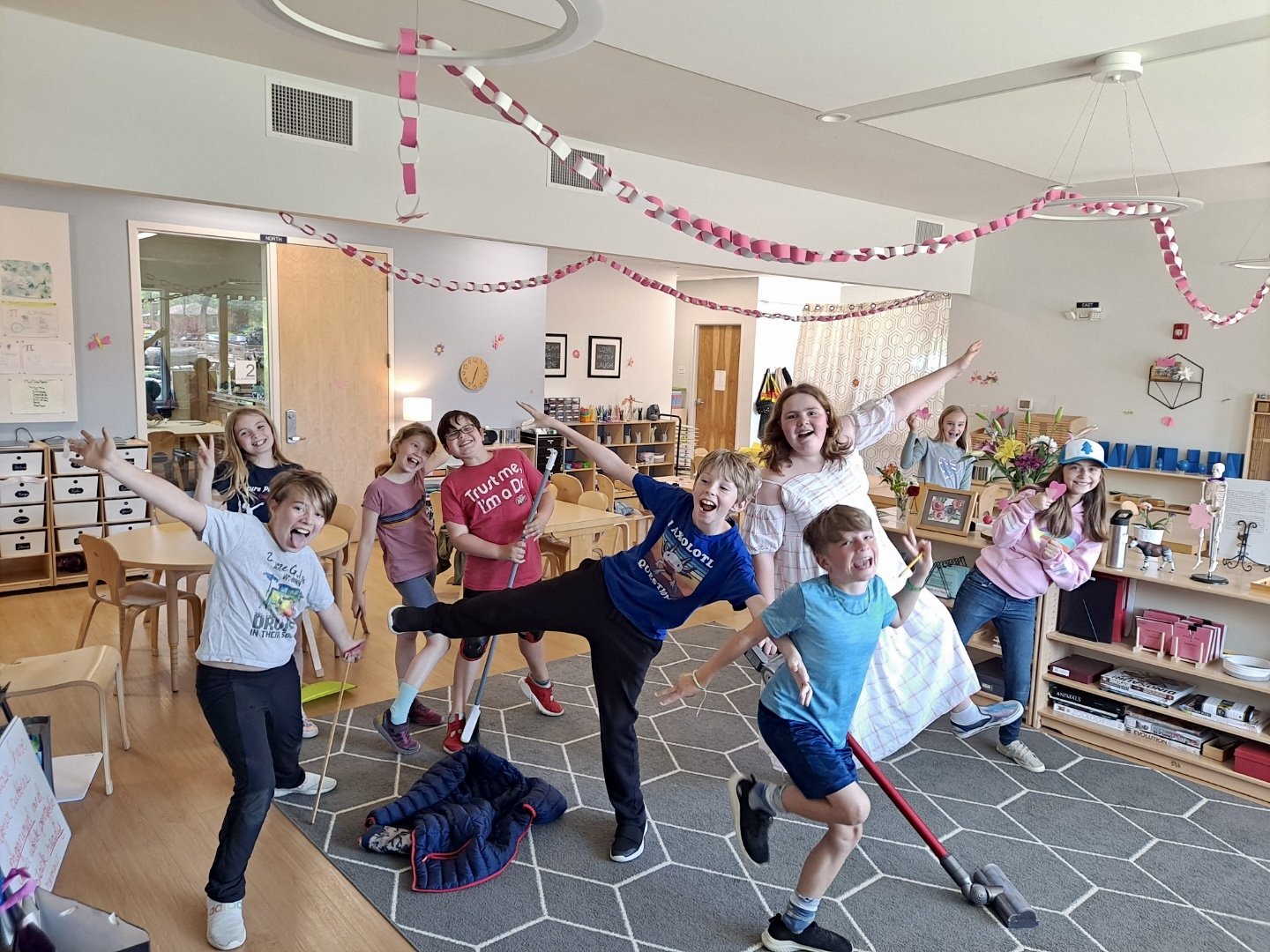 Finally, you are supporting your Second Plane child simply by having them at an authentic Montessori school! The elementary environments (including the guides) are specifically tailored to meet the needs of this age group so that they can utilize the characteristics of this season to the utmost. The energies of this deeply intellectual and social period needs to be harnessed, guided and encouraged. What better place to explore all their deep questions about the universe than in the rich, engaging Montessori environment? Because the elementary classroom addresses the social, emotional, and intellectual needs of our Second Plane children, they are able to thrive and reach their potential, becoming their own heroes, and perhaps someday to save the world.
Finally, you are supporting your Second Plane child simply by having them at an authentic Montessori school! The elementary environments (including the guides) are specifically tailored to meet the needs of this age group so that they can utilize the characteristics of this season to the utmost. The energies of this deeply intellectual and social period needs to be harnessed, guided and encouraged. What better place to explore all their deep questions about the universe than in the rich, engaging Montessori environment? Because the elementary classroom addresses the social, emotional, and intellectual needs of our Second Plane children, they are able to thrive and reach their potential, becoming their own heroes, and perhaps someday to save the world. 

